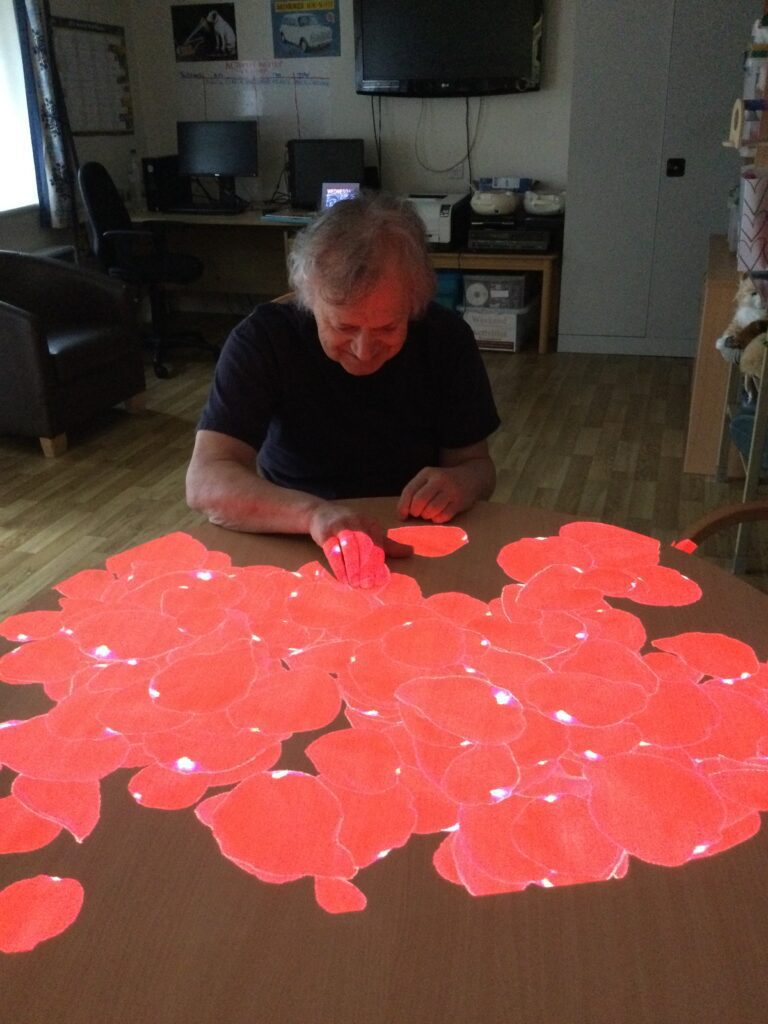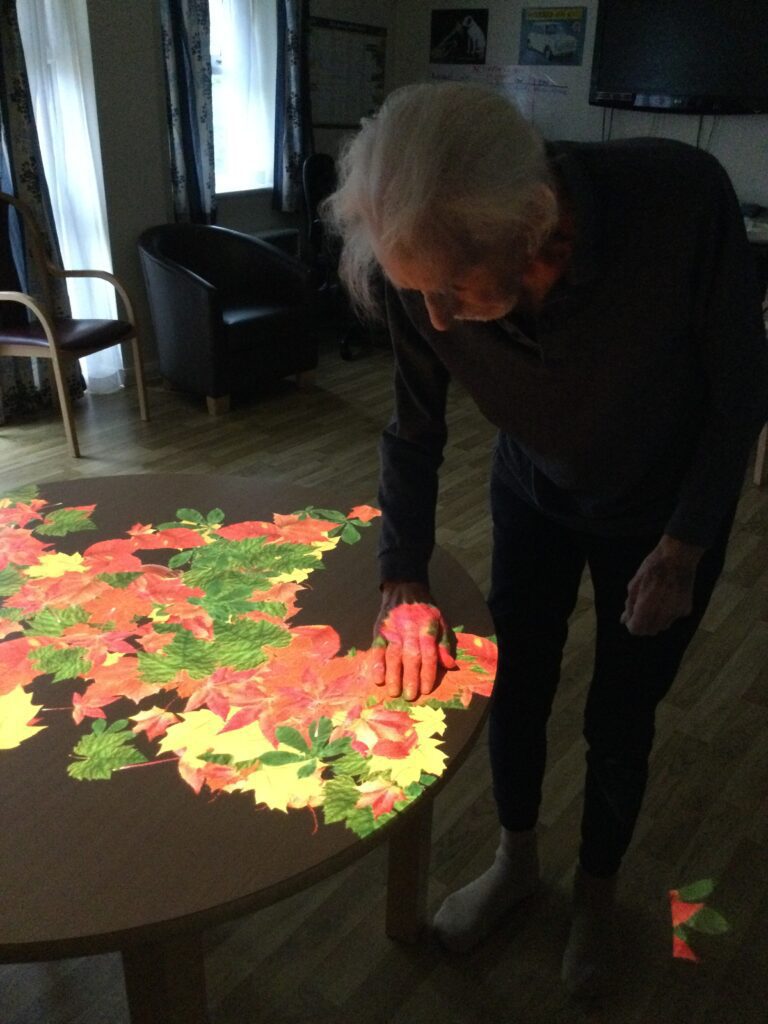There are many ways the NHS can help support dementia. Interactive light technology is used by the NHS to support people living with dementia. A part of the Happiness Programme, the interactive light projector uses this technology to provide a sensory experience. It’s a specialist piece of equipment designed to bring joy and happiness and is proven to have a hugely positive impact on those who use it.
We spoke to Alina Kutraite, Ward Manager at the Dementia Assessment Unit in Thurrock Community Hospital, to learn more about the impact the Happiness Programme has been having on their residents and staff.


We started by asking Alina how it’s being used…
We use it every single day. Both the staff and patients have loved it and it’s proved particularly effective at engaging patients and de-escalating their behaviour that challenges staff.
There are certain games that always prove popular. Among our patients living with dementia, the bubbles game gives them a physical activity to get them moving and reaching across the table.
Then there’s the sensory and musical therapy which we’ve used a lot. A combination of the colours and sounds, as well as the music on some of the games, really helps to offer a unique activity and takes people out of whatever anxiety or difficult moment they might be experiencing at that time.
Then we asked about the benefits that Alina and the other staff attribute to the Happiness Programme…
We’re seeing a range of different benefits. The patients are more engaged and awake during our magic table 360 sessions, compared to other activities we run, and this has resulted in their hydration levels improving – something that really can improve their health and wellbeing.
They’re also more cognitively active as the games are set at just the right level of stimulation to engage them. Again this improves their wellbeing and alertness levels.
We then asked Alina to tell us a bit about how the Happiness Programme works in a hospital setting…
The projector itself is so portable, it allows us to easily move it between patients’ rooms; something that we want to do even more. It helps hospital staff and has been amazing at reducing isolation and de-escalating the cycle of aggression that we can sometimes experience. It stops the patient’s negative emotions peaking which is just so hard to do in our setting and allows us to redirect their attention to a calm and entertaining moment. It almost transports them out of the ward.
It’s helped us as a care team engage our patients and develop strong relationships too and has definitely reduced staff burnout.
Finally, we asked Alina about whether it had been effective as a therapeutic intervention…
Definitely, yes. It’s helped the care staff to intervene earlier and has avoided some of those situations where PRN medication might be needed. As a result, we’ve also had fewer instances of physical aggression towards staff.
In my 6 years working here, I haven’t
come across another activity like it. Having the Happiness Programme to make
the residents smile and bring a little happiness to them has been
transformative for patients and staff alike. I think this would work well on
any mental health ward and in even in general hospital.
Not a member of the happiness programme?
The Happiness Programme is a first-of-its-kind initiative helping to change the lives of people living with cognitive challenges. We use interactive light technology to provide meaningful activities for residents and patients in care homes and care settings. For more detail on what the Happiness Programme is and how it’s helping care venues across the UK, visit our getting started page.
Alternatively, jump to our dementia, learning disability, rehabilitation and NHS pages for more specific detail on how it’s helping care homes like Barchester and HC-One as well as hospitals and local authorities such as St George’s Hospital, London and Westminster and South Kensington Council.
For anything else, you can contact us here too.

Copyright © 2021 Social-ability. All Rights Reserved.